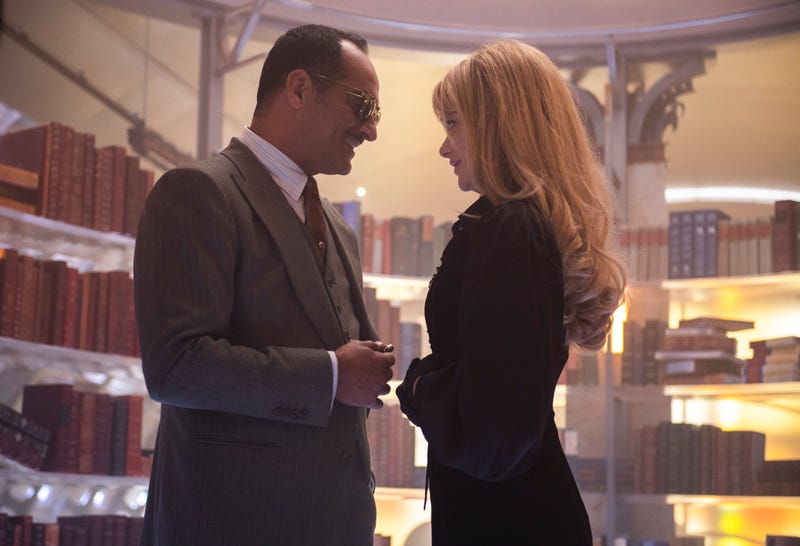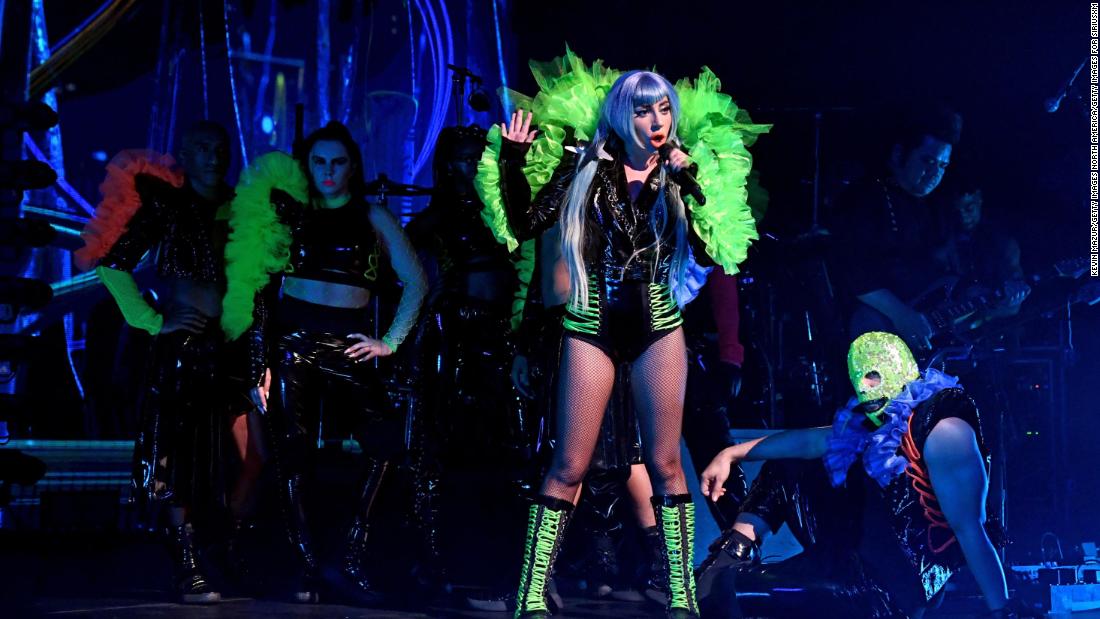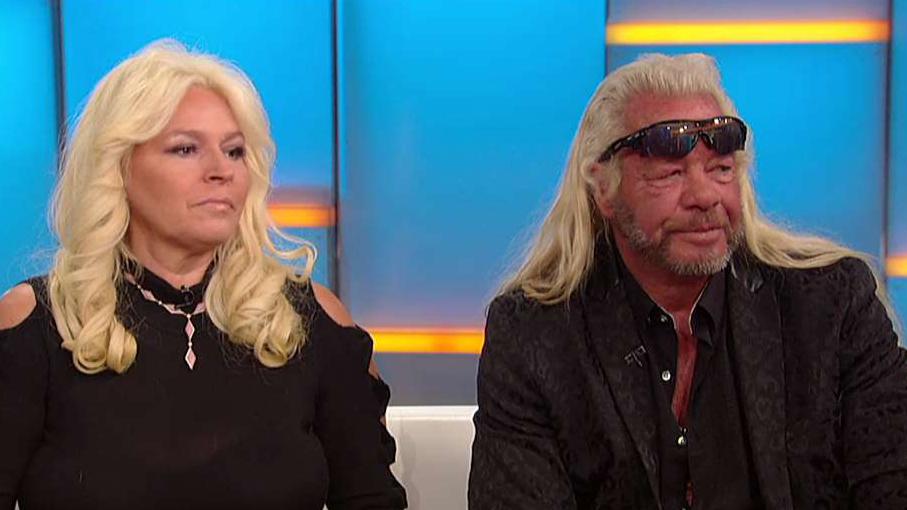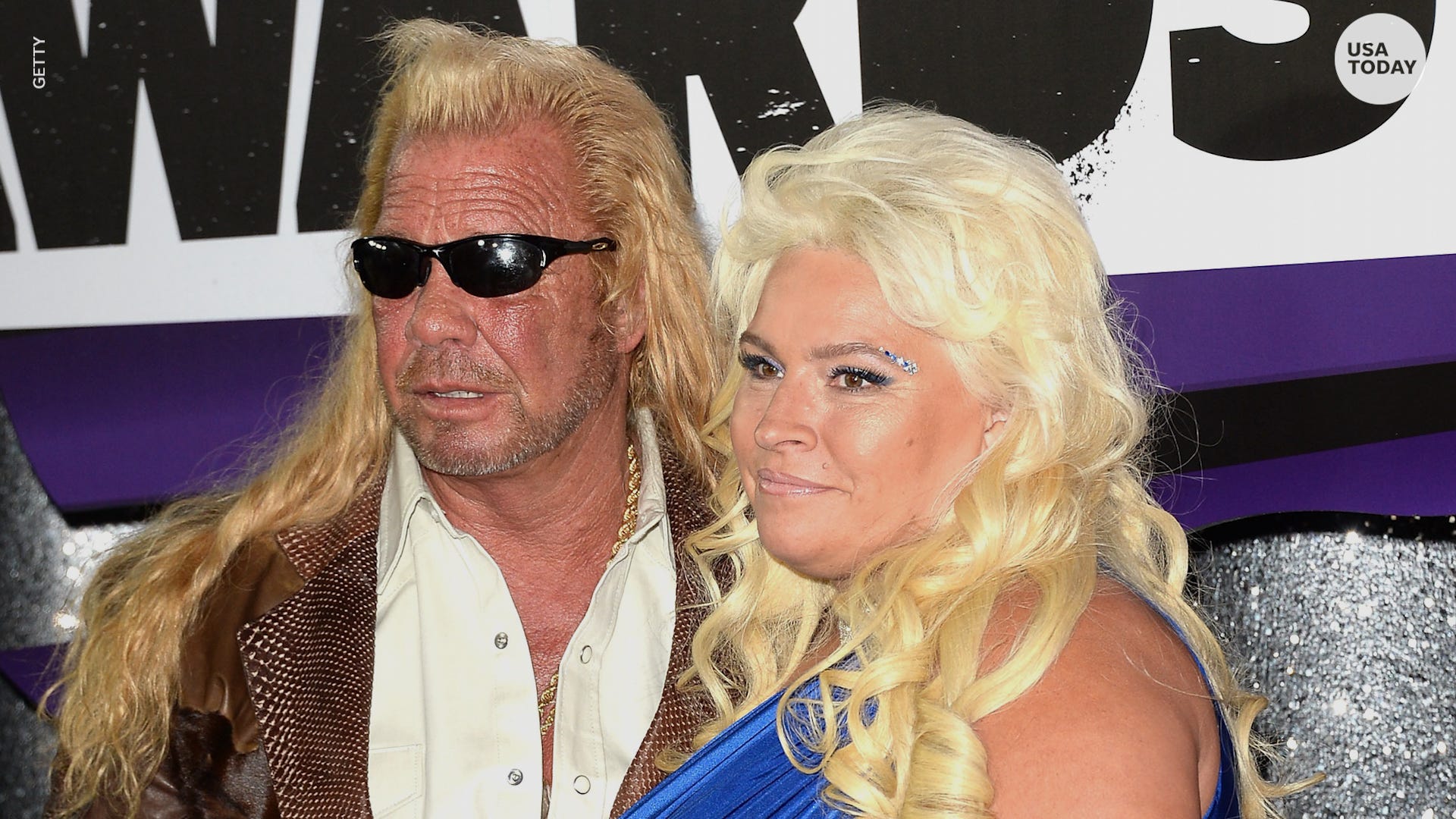From the first chapter of his mind-bending FX series Legion, creator Noah Hawley (Fargo) aimed to subvert the expectations of comic book culture. Legion took place in the X-Men universe where “mutants” and man mixed and mingled, but gone was the blockbuster bombast. David Haller (Dan Stevens) resembled his super-powered counterpart — a telepath with dissociative identity disorder — but his fight against the Shadow King was psychological and fraught with ideological peril.
Then the end of season 2 happened. Now David is the villain, Syd is on the hunt, Amahl Farouk is working with Division 3, and the dynamics we thought we knew have been subverted once again. Polygon had a chance to talk to Hawley about his creative decisions for season 3, which introduces David’s father, Charles Xavier, grapples with the antihero’s sexual assault against Syd, and will ultimately wrap up the series.
Polygon: What was your creative timeline after Legion season 2 ended last summer? You found time to write and direct a movie, Lucy in the Sky, which bows later this year, and you signed Chris Rock on for Fargo season 4. Somewhere in there you wrote and shot this final season.
Noah Hawley: To be fair to myself, I was meant to have more time. I sat down with both Searchlight and FX together to talk about when I could make Lucy and Legion season 3. The initial conversation was that I would make Lucy and then we would push season 3. That didn’t end up being what happen, so ... it’s a bit of a blur to me. I guess I made season 2 of Legion, went into prep on the movie, then shot the movie. And then the day that we wrapped the movie, I was 12 weeks out on Legion season 3 and had to write all of those scripts while I was editing the film. The film is in its final mix stage right now, even as the show is in its final mix stage. Somewhere in the last three months I did a Fargo writer’s room and have written three scripts.
:no_upscale()/cdn.vox-cdn.com/uploads/chorus_asset/file/16615629/01_legion_301_0289r.jpg)
Season 2 ended on a dark note that essentially turned David into the series’ villain. Did you have a jump on writing season 3 since you knew where the story was headed?
I don’t know how to tell a story that I don’t know how it ends because the ending is what gives the story its meaning. I always had a sense of where the story was going to end, but that doesn’t mean it’s easy to figure out exactly how to get there in a satisfying way. And for a show that hopefully undermines some of the tropes of the genre, it becomes even more important to stick your landing. If you’re not going to have Avengers: Endgame, everybody fighting for 45 minutes, and you want to have an alternate approach on how to end one of these stories, you better have thought it through and delivered something that’s satisfying.
If Avengers: Endgame and most comic book storytelling is about going bigger and bigger, was the idea of Legion always to go smaller and smaller?
Here’s what I would say: if the metaphor for a lot of these movies is war, the only way to resolve conflict is through war, I think we have to say that you have a winner but the loser doesn’t change. Defeat doesn’t equal change, right? Only change equals change. So if you’re looking for a character to make some kind of change or transformation, then winners don’t change because they won. And losers don’t change — they just get angry if they’re not dead. You know what I mean? So you need to find some other way to create real change in your story and characters other than war.
The season 3 premiere is almost entirely focused on a new character, Switch, a Japanese woman with the ability to time travel. How did you wind up starting there?
This story was designed to be a subjective show from David’s point of view, so in the first two seasons, we saw the world through his eyes, and he was our hero. And as season 2 went on, and as it ended, we realized that he was a conflicted and unreliable narrator. So it felt, to me, what we needed to do in season 3 is to step out of his point of view into an objective point of view and then tell the rest of the story from that point of view. In order to do that, you have to actually switch points of view. The idea of starting from a true outsiders vantage felt better to me than simply switching to another character in the show, which I thought might be confusing on some level.
Coming in through an outsider’s eyes allows you to to really see David as a stranger. To go like, oh, this guy’s a bit nuts. He’s a guru. He’s surrounded himself with acolytes who love him unconditionally, most likely because he’s planted that idea in their minds. And he talks about when he was in the psych hospital and there was a monster in his head, and you’re like, this guy’s a bit crazy. Like when we were in his head, it all made sense. She also then sees Syd and the others from an objective point of view. So it’s not that we don’t go back into David’s point of view, or switch to Syd’s or any of the other characters, but it did allow the show to switch its approach.
:no_upscale()/cdn.vox-cdn.com/uploads/chorus_asset/file/16615643/legion_301_0231r.jpg)
The show is known for disorienting perspectives, and now you’ve added time travel to the mix, which seems tricky. How did you incorporate that
What’s great is that it does provide you with an opportunity to be playful. Often it’s used in a very serious way, but what I love about how that first hour came together is that, because we live in linear time, we can’t help but assume that the story that we are going to watch is going to unfold in linear time. And it does — we stay with Switch until the moment where something traumatic happens, and then she’s able to travel back. It reminds us! We knew she was a time traveler, but we didn’t really know how that would impact the story. I think that makes her a very dynamic and exciting character because, if he can always change his own path now, how could they ever get ahead of him? Then obviously as the season goes on, we start to play with time in a visceral and structural way, both for the characters and also for the audience.
You wrote a Doctor Doom movie for Fox that may or may not see the light of day. Did you learn anything about writing for a villain on that script that you could apply to David?
It’s always interesting to think about these words, “heroes” and “villains.” There’s a trope that you’re only as good as your villain, which I think is true, but I think it also means that the show or the movie is only good if the villain is dynamic and compelling and interesting and comprehensible. So much of what you face in the escalation of these movies in the last 15 years has been ... you end up with a villain who wants to destroy the world ... why? It never really makes much sense. But you need the scale of the destroying the world in order to justify the scale of the action required to stop him.
What I’m concerned with, in Legion especially, is the nature of everyday evils, the evils that we do to each other. We projected [the drama] onto a global scale, but really it’s about what David does to Syd, and what his parents did to him. That’s where the real evil, those problems, are addressed: in actual human interactions. Doctor Doom is a bit of a different character just because he’s the king of his own country and he wasn’t my way into the story, he’s an enigmatic character, but the movie, if we make it, if it’s done right, there is a compelling story there about this guy who it’s not clear if he’s a villain yet.
What I appreciate about the X-Men is, if you look at Magneto’s character, he’s a guy who can and does walk on both sides of the moral spectrum. Sometimes he’s working on the side of good and sometimes he’s working on the side of evil and that seems more realistic then just the mustache twirling villain.
If Doctor Doom wasn’t the main character of your Doctor Doom movie, who was?
Wouldn’t you like to know? Maybe we’ll make it. He’s not our way into the movie, let’s just put it that way. That doesn’t mean he’s not the star of the movie, just not our way in.
:no_upscale()/cdn.vox-cdn.com/uploads/chorus_asset/file/16615647/legion_301_0943r_2.jpg)
Last season provoked a major reaction from viewers when David mentally “drugged” and sexually assaulted Syd. How does the arc of season 3 respond to that turn, and perhaps the reaction itself?
There’s a quote in the second episode that Syd says to David, which is a Margaret Atwood quote, I believe, where she says, “Men are afraid that women will laugh at them. Women are afraid that men will kill them.” It’s a profoundly unsettling idea.
I guess what I would say in addressing this whole issue is that, I’m very aware that, the comic book audience historically, and the comic movie audience [seeing] family movies, there is a strong faction of young men and boys, 15 and up, 13 and up, who read these stories, who love these stories, and I think it’s important to have a conversation about power, and male power, in our culture. If we don’t talk about these things than then they’re not addressed.
The idea that no means no, and stop means stop, and consent is real, if you make that part of these stories, which are entertaining, certainly, and satisfying, hopefully on an action level and viscerally, now you’re having a real conversation with your audience about things that are important in that matter. I focus on the young men and boys, but it’s also important for all genders to be able to have this conversation and to have it as part of our public discourse and also in our art so that we all understand that might doesn’t make right.
Season 3 introduces us to Charles Xavier, David’s father. What was your approach to writing for that character considering the mainstream viewer’s knowledge of “Professor X”?
I think we have some range, given the fact that Legion exists in a bit of an alternate universe from the X-Men movies, and because it’s a bit of a subjective look from inside the mind of someone who doesn’t really perceive reality the way that everybody else does. If you look at the show, it’s both 1964 and the future. And we don’t know exactly where it is and the world, so it’s a bit of an allegory. I think the conversation about Xavier and bringing it in to the story, which we had to do because of course he’s David’s father, and in our story, David was given away as a baby to protect him. And any adopted child wants to find their birth parents and understand where they came from and why their parents didn’t raise him. So we had to go there.
And then the question was, which Charles Xavier is it? Is he a young man? Is he an older man? I think in the mythology he’s obviously a younger man, and I thought it was interesting that if we could travel through time, that when David faces his father, they’re basically the same age. That was interesting.
In several interviews during season 2, you said that the mathematical feeling of constructing plot drove you to write “Chapter 14,” an episode that imagines different outcomes of David’s life. Did season 3 push you in a similar way, and what were the results?
The sixth hour functions a lot as a standalone, and is definitely a whimsical departure from the story, but also, I think, a really critical way to examine Syd’s character and to talk about something that’s really critical to this show, and to this season specifically, which is about parenting, and how we raise our children. If we raised them with love and the right tools and the right understanding of the world, then they’re going to be healthy people who create a healthy world. And if we don’t, then they’re not.
To the degree that this show has proven to me to be a kid show for adults and an adult show for children of a certain age, I think it’s important to look at the way we raise our kids. Obviously David wasn’t raised properly, and that contributed to his character. And character is everything in a story, so if we have the chance with Syd to really look at her character ... she grew up too fast. She talks in the season about how she had her first drink when she was nine years old. When we saw our in season 1, she talked about how, if anyone can just come into her body and change places with her, then she doesn’t really own her body, and that’s okay.
Well, it’s not okay. We all need a healthy sense of self and then also a sense of the responsibility that we have to others. What I love about this show is that, because it’s a genre show, I can just make those departures and do an episode that is a multiple alternate universe episodes, not for plot reasons, but for theme and character reasons.
Very important final question: the premiere reveals that David now owns a giant pig. Why a giant pig?
I guess the only answer to that is: why not a giant pig?
https://www.polygon.com/tv/2019/6/25/18715883/legion-season-3-noah-hawley-interview-charles-xavier-david-syd-xmen
2019-06-25 15:20:23Z
52780319813519







